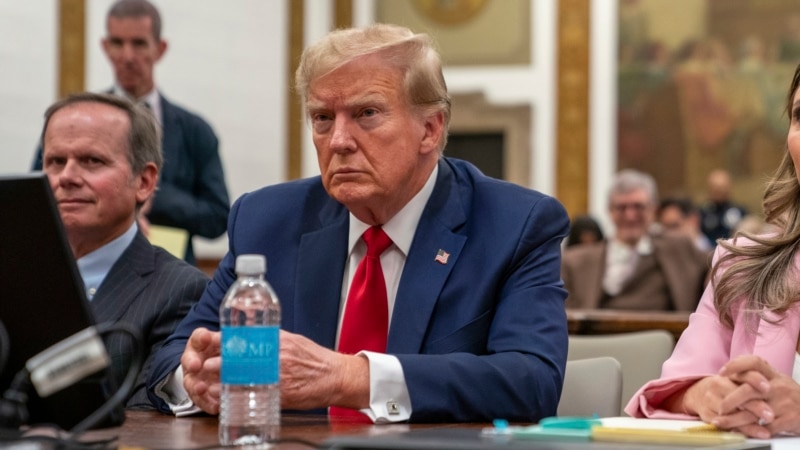
Donald Trump ‘s New York civil fraud trial is back in session Thursday for closing arguments after authorities responded to a bomb threat at the home of the judge who moved this week to prevent the former president from delivering his own closing statements.
Authorities responded to the threat at Judge Arthur Engoron’s home on Long Island, a court official said. The proceedings are not expected to be delayed as a result.
Trump, the leading contender for the Republican presidential nomination, had angled to deliver his own closing remarks in the courtroom, in addition to summations from his legal team, but a judge nixed that unusual plan Wednesday.
That will leave the last words to the lawyers in a trial over allegations that Trump exaggerated his wealth on financial statements he provided to banks, insurance companies and others.
“There was a threat. I can confirm a bomb threat,” said Al Baker, a court spokesperson. “As of now we are going forward as scheduled and the court proceedings and closing arguments are going ahead as planned.”
New York Attorney General Letitia James, a Democrat, wants the judge to impose $370 million in penalties. Trump says he did nothing wrong, didn’t lie about his fortune and is the victim of political persecution.
The former president had hoped to make that argument personally, but the judge — initially open to the idea — said no after a Trump lawyer missed a deadline for agreeing to ground rules. Among them, Judge Engoron warned that Trump couldn’t use his closing remarks to “deliver a campaign speech” or use the opportunity to impugn the judge and his staff.
Trump is still expected to be in court as a spectator, despite the death of his mother in-law, Amalija Knavs, and the launch of the presidential primary season Monday with the Iowa caucus.
Since the trial began Oct. 2, Trump has gone to court nine times to observe, testify and complain to TV cameras about the case, which he called a “witch hunt and a disgrace.”
He clashed with Engoron and state lawyers during 3½ hours on the witness stand in November and remains under a limited gag order after making a disparaging and false social media post about the judge’s law clerk.
Thursday’s arguments are part of a busy legal and political stretch for Trump.
On Tuesday, he was in court in Washington, D.C., to watch appeals court arguments over whether he is immune from prosecution on charges that he plotted to overturn the 2020 election — one of four criminal cases against him. Trump has pleaded not guilty.
James sued Trump in 2022 under a state law that gives the state attorney general broad power to investigate allegations of persistent fraud in business dealings.
Engoron decided some of the key issues before testimony began. In a pretrial ruling, he found that Trump had committed years of fraud by lying about his riches on financial statements with tricks like claiming his Trump Tower penthouse was nearly three times its actual size, or valuing his Mar-a-Lago estate in Florida at more than $612 million based on the idea that the property could be developed for residential use, when he had signed an agreement surrendering rights to develop it for any uses but a club.
The trial involves six undecided claims, including allegations of conspiracy, insurance fraud and falsifying business records.
Trump’s company and two of his sons, Eric Trump and Donald Trump Jr., are also defendants.
Besides monetary damages, James wants Trump and his co-defendants barred from doing business in New York.
State lawyers say that by making himself seem richer, Trump qualified for better loan terms from banks, saving him at least $168 million.
Trump contends his financial statements actually understated his net worth. He said the outside accountants that helped prepare the statements should’ve flagged any discrepancies and that the documents came with disclaimers that shield him from liability.
Engoron said he is deciding the case because neither side asked for a jury and state law doesn’t allow for juries for this type of lawsuit. He said he hopes to have a decision by the end of the month.
Last month, in a ruling denying a defense bid for an early verdict, the judge signaled he’s inclined to find Trump and his co-defendants liable on at least some claims.
“Valuations, as elucidated ad nauseam in this trial, can be based on different criteria analyzed in different ways,” Engoron wrote in the Dec. 18 ruling. “But a lie is still a lie.”
